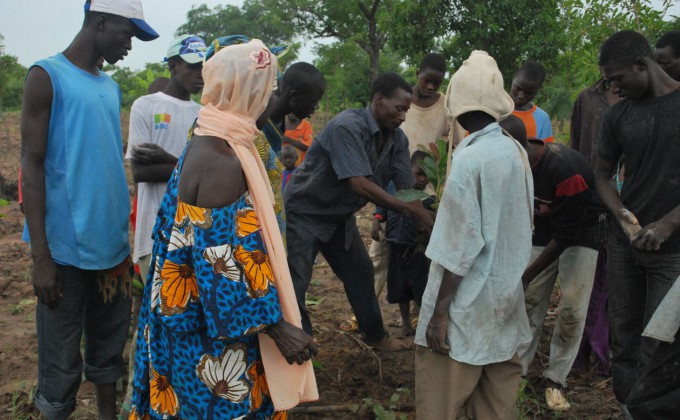This project is an emergency humanitarian intervention led by CECI in response to the armed conflict raging in northern Mali since 2012, which led to a situation of great food insecurity. It seeks to reduce vulnerability for families affected by the crisis and to improve their resilience by looking to reestablish their livelihood. In those often isolated rural areas where the population’s survival depends on its ability to feed itself, the project seeks to enable a revival of agricultural activities, the communities’ main means of subsistence. Launched in July 2013, the annual emergency aid project is leading its 6th campaign (June 2018 - June 2019). This year, it targets 69 new villages.
Encouraging Economic and Agricultural Revival
The project aims to improve food security and resilience among the local population affected by the armed conflict through the recovery of their livelihoods.
To encourage the revival of agricultural activities, CECI and its Malian partner are regularly distributing seeds and other productive inputs. They organize training sessions in order to improve production techniques and build the conditions that will enable better yields. Cattle feed is also distributed so as to ensure the survival of the herd through the lean period. Since the start of the project, 1,892 small farmers (including 641 women) have benefited from this kind of support.
In addition, the rehabilitation of small productive infrastructure (irrigation channels, garden and livestock wells, etc.) is creating temporary employment and promoting the stimulation of economic activities.
In 2014 and 2015, the project also included support for the re-launch of economic activities for women through an unconditional money transfer program. More than 950 women engaged in new activities thanks to these transfers.
A Participatory Approach
To encourage social cohesion in a post-conflict context, the activities are led with a participatory approach. The beneficiaries are thus chosen through a transparent process
involving their representatives as well as local authorities. Mixed committees, comprised of the families that remained throughout occupation and those that came back after the crisis, are fostering collaboration and reconciliation. Furthermore, the project is being implemented in the context of sustained collaboration with local sector representatives of the central state, aiming to generate better synergy between the initiatives and the government’s priorities.
Significant Outcomes
The project enabled an effective recovery of grain (including rice) and vegetable production across 132 irrigated perimeters in the villages and 73 vegetable gardens. There is a stark increase in agricultural yields and rice production. Throughout the first three agricultural campaigns, 24,965 tons of rice were harvested by the project’s beneficiaries, for an average of 2.3 tons each. The wider availability of grains and vegetables translates into more meals eaten every day, fewer malnourished children, and better food security for households. As for the recapitalization of local suppliers, it allows to reboot the local market for farming inputs.
The many activities for the 2017–2018 agricultural campaign will follow the same approach:
- Supporting the rehabilitation of 20 garden and livestock wells, as well as 46 irrigated village perimeters for grain production
- Distributing seeds and tools to 5,000 farming households (with at least 2,025 women) to relaunch grain and vegetable production
- Distributing livestock feed to 1,500 small farmers (including at least 700 women) during the 2018 lean period in order to sustain 3,700 animals
- Training and awareness- and capacity-building activities aimed at strengthening resilience among households
Project figures
23,083 (including 11,430 women) households to receive seeds and tools now engaged in agricultural revival activities
6,784 animals supported with feed rations during the lean periods:
6,334 people have received farming training
20% increase in cereal production in 2017
Proyectos
Presencia
El CECI
Implicarse
Informarse
Donar
Contáctenos
Enlaces externos






